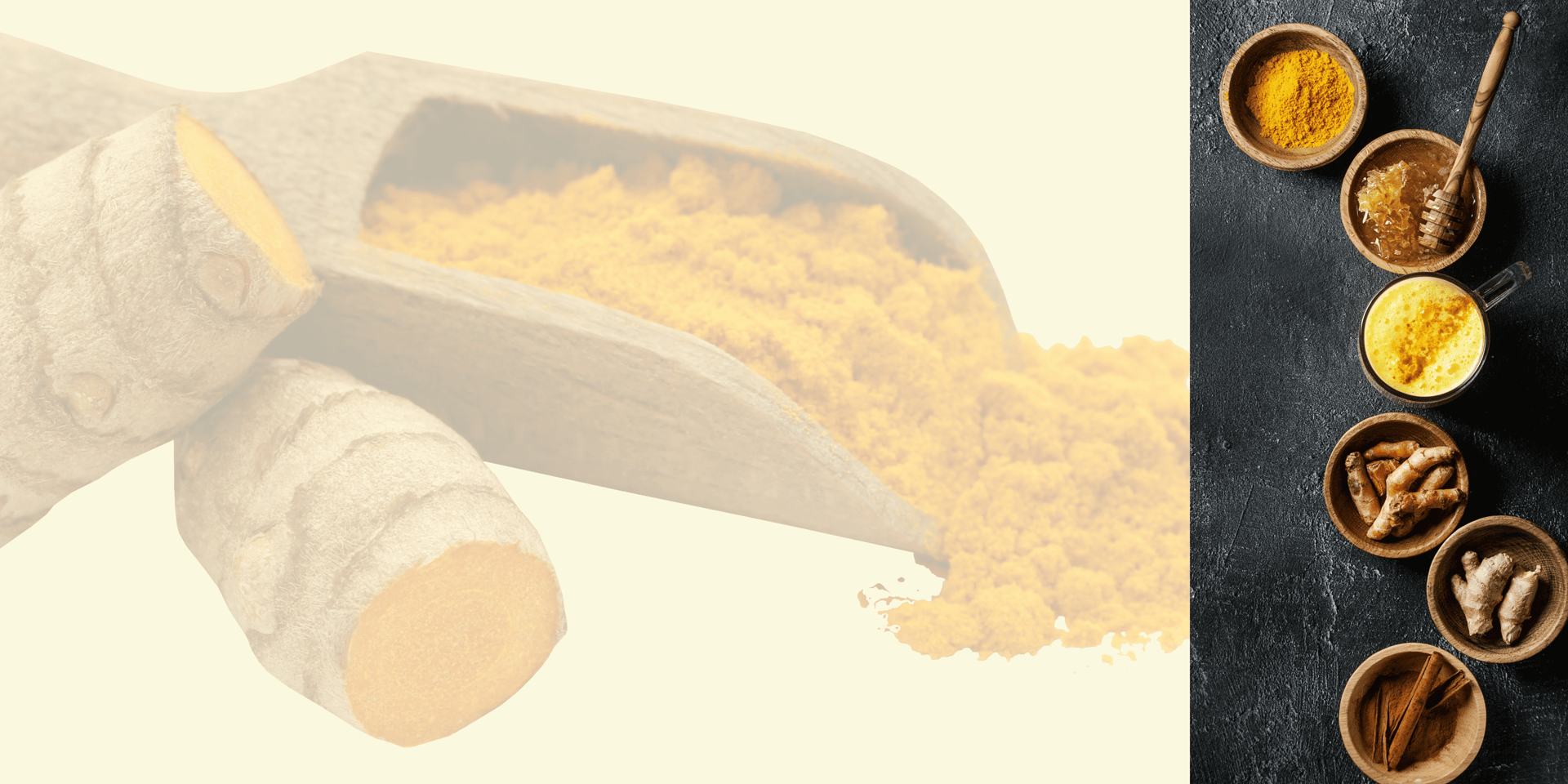
TURMERIC
Turmeric is a golden-yellow spice derived from the Curcuma longa plant, known for its powerful anti-inflammatory and antioxidant properties. Rich in curcumin, it supports joint health, boosts immunity, aids digestion, and promotes heart and brain function. Used in traditional medicine and modern wellness, turmeric is a natural remedy for overall health and well-being.
Turmeric: The Golden Healer
Turmeric, often called the "golden spice," has been a staple in traditional medicine for centuries. Derived from the root of Curcuma longa, this vibrant yellow spice is widely used in culinary dishes and herbal remedies. Modern research has confirmed its numerous health benefits, particularly its powerful anti-inflammatory properties.
The Science Behind Turmeric’s Healing Properties
The primary active compound in turmeric is curcumin, which is responsible for most of its medicinal benefits. Curcumin is a potent antioxidant and has strong anti-inflammatory effects. However, curcumin’s bioavailability is relatively low, meaning that the body does not easily absorb it. Consuming turmeric with black pepper, which contains piperine, can enhance absorption significantly.
How Turmeric Fights Inflammation
Inflammation is the body’s natural response to injury or infection. While acute inflammation is beneficial for healing, chronic inflammation can contribute to various health conditions such as heart disease, arthritis, and even cancer. Curcumin has been shown to inhibit molecules like NF-kB, which play a significant role in chronic inflammation.
Turmeric for Arthritis and Joint Pain
Arthritis, which includes conditions like osteoarthritis and rheumatoid arthritis, is primarily characterized by inflammation in the joints. Studies suggest that curcumin can be as effective as some anti-inflammatory drugs in reducing arthritis symptoms, without the harmful side effects.
Turmeric and Heart Health
Chronic inflammation is a key contributor to heart disease. Curcumin improves the function of the endothelium, the lining of blood vessels, which helps regulate blood pressure and prevent clot formation. It also reduces oxidative stress, which is another major factor in heart disease.
Turmeric for Brain Health
Curcumin has been found to boost levels of brain-derived neurotrophic factor (BDNF), a growth hormone that supports brain function. Low levels of BDNF have been linked to neurodegenerative diseases such as Alzheimer’s and depression. By increasing BDNF levels, turmeric may help delay or even reverse age-related cognitive decline.
Turmeric and Digestive Health
Turmeric has long been used as a remedy for digestive issues. It can help with bloating, gas, and indigestion by stimulating bile production. Its anti-inflammatory properties also make it beneficial for conditions like inflammatory bowel disease (IBD), including Crohn’s disease and ulcerative colitis.
Turmeric’s Role in Cancer Prevention
Research suggests that curcumin may play a role in preventing and even treating certain types of cancer. It has been found to inhibit the growth of cancer cells, reduce tumor formation, and enhance the effects of chemotherapy in some cases. Though more research is needed, these findings highlight turmeric’s potential as a complementary treatment for cancer.
How to Incorporate Turmeric into Your Diet
1. Turmeric Tea (Golden Milk)
A popular and soothing way to consume turmeric is by making golden milk. Simply mix turmeric with warm milk (dairy or plant-based), add black pepper, and sweeten with honey for a delicious anti-inflammatory drink.
2. Turmeric Smoothies
Blend fresh or powdered turmeric into your favorite smoothie with fruits, greens, and a touch of ginger for an extra health boost.
3. Turmeric in Cooking
Turmeric is a staple in Indian and Southeast Asian cuisines. Add it to soups, stews, curries, and even scrambled eggs for a vibrant color and health benefits.
4. Turmeric Supplements
If you find it difficult to consume enough turmeric through food, you can opt for curcumin supplements, preferably those with added piperine for better absorption.
Potential Side Effects and Precautions
While turmeric is generally safe, consuming it in excessive amounts may lead to digestive issues, such as acid reflux or an upset stomach. People taking blood-thinning medications or those with gallbladder disease should consult a doctor before using turmeric supplements, as it can interfere with certain medications.
Conclusion
Turmeric is a powerful natural remedy with extensive health benefits, especially due to its anti-inflammatory properties. Whether used in food, teas, or supplements, incorporating this golden healer into your daily routine can contribute to overall well-being and long-term health. As research continues to uncover more about turmeric’s potential, it remains one of nature’s most remarkable gifts to humanity.
